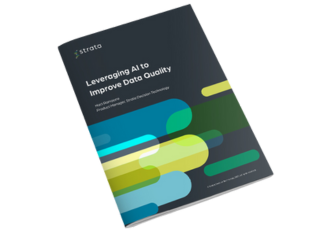We're here to help.
We give you the solutions, data, and insights you need to better analyze, plan, and perform in support of your mission.

We give you the solutions, data, and insights you need to better analyze, plan, and perform in support of your mission.

Helping healthcare organizations enhance financial and operational agility, so they can focus on the important work of caring for our communities.
Helping colleges and universities build the financial health and stability they need to maintain their vital missions of molding future generations.
Helping banks, credit unions, and other financial institutions build strong communities with powerful budgeting, planning, and analytics solutions.

WHITEPAPER
Explore how artificial intelligence (AI) and machine learning (ML) are redefining the standards for healthcare financial data quality








Our deep expertise across the dedicated industries we serve make Strata the “Gold Standard” for your financial planning, analytics, and performance needs.
We pride ourselves on offering world-class customer service. For more than 15 years, StrataJazz received the prestigious “Best in KLAS” rating for our Business Decision Support solutions, reflecting our focus on delivering world-class experiences for our customers.
We serve more than 2,300 organizations across healthcare, higher education, and financial services. From our extensive networks, we look to share learnings and best practices across our customers.
Our solutions serve as your single source of truth for financial planning, decision support, and continuous improvement — one application to cover the entire enterprise.
We are a trusted advisor with exceptions levels of service.
As part of Roper Technologies — a publicly traded holding company (NYSE: ROP) — Our financial stability allows us to invest and innovate to better serve our customers.


Strata has been named a "Best Place to Work" for multiple consecutive years by the Chicago Tribune, Built In Chicago, Becker’s Healthcare, and Modern Healthcare.
These awards highlight companies that promote diversity, employee engagement, and professional growth, creating an exceptional place to work.